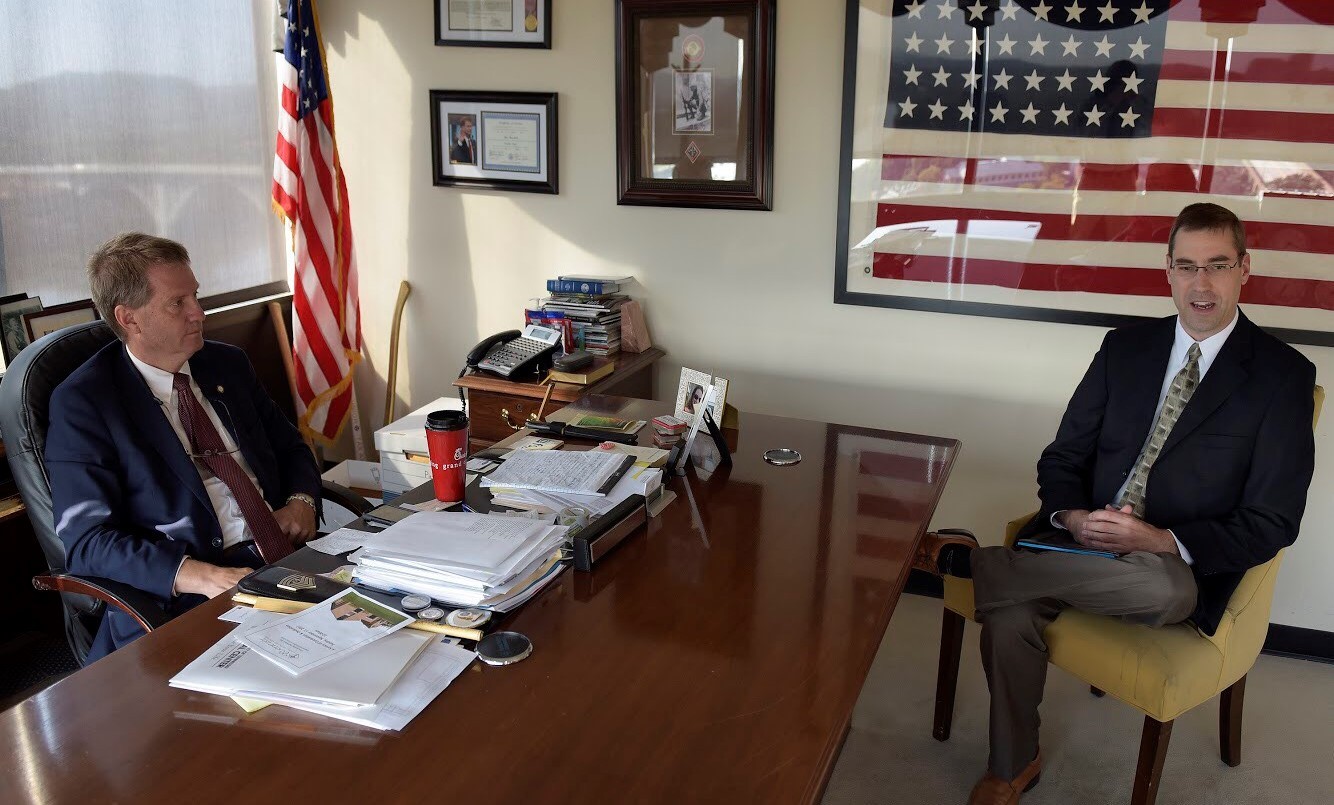Colin Ickes’ name isn’t a household word, but he seems OK with being the most important local public official that hardly anybody knows. He’d probably be happy to keep on quietly doing his job from now on, since stepping into the spotlight would mean that calamity has hit the community he serves.
Ickes was appointed director of the Knoxville-Knox County Emergency Management Agency (KEMA) in April 2016. Before that, he’d been KEMA’s operations director for 11 years. He has a master’s degree in emergency management administration and undergraduate degrees in music and biology. He reports to both Knoxville Mayor Madeline Rogero and Knox County Mayor Tim Burchett.

Social media post by a friend of Colin Ickes.
KEMA works with state and federal counterparts TEMA and FEMA when disaster strikes Knox County, but his most recent major deployment was to Sevier County when its emergency management manager John Matthews called for help with communications during last year’s wildfires. Ickes and Judy Wasik, KEMA’s operations manager, took the agency’s mobile command post truck to Gatlinburg for a week and worked 12-hour shifts. In between, Ickes folded his 6-4 frame into his car for occasional cat naps and went home to sleep for six-hour stretches.
Part of the job, he said.
“During disasters, there is no agency that has every resource they could possibly need. Knox County frequently gets called to assist in emergencies.”
He said that the public didn’t become aware of emergency management until Hurricane Katrina, referring to FEMA’s much-criticized 2005 performance in New Orleans, most particularly the performance of former FEMA chief Michael (“Heck of a job, Brownie!”) Brown, a lawyer with no emergency management experience.
“I think we’ve all learned since then, and the last few (FEMA directors) have been professionals. Everyone I talk to has great respect for (Trump appointee) Brock Long.”
Ickes said storms, floods and wildfires caused by extreme weather conditions are becoming the most common causes of local disaster situations. And they’re getting more severe and more expensive to handle.
“Our reality is that we’ve seen trends here in Knox County. We’re getting roughly same amount of rainfall as before, but it’s coming in short amounts of time, followed by drought conditions.”
This means floods and fires. And although Knox County’s sheltered inland location makes countywide devastation a remote possibility, Ickes knows that emergencies are bound to happen, and he needs to predict and prepare for them.
“We are seeing those trends and that’s something, as emergency and disaster planners, we can’t ignore. We’ll see what the future holds.”
Probably more floods, tornadoes, snow storms, heavy thunder storms and straight-line winds.
But nature isn’t the only thing that worries Ickes. There are human error threats, too, like the epic Farragut train derailment that involved 27 cars and required the evacuation of 5,000 residents. Ickes knows the facts by heart, even though the derailment happened in 2002, three years before he went to work for KEMA.
“We were just fortunate with the Farragut train derailment. When the train derailed, it made a mess of the cars, and one particular tank was leaking. It was carrying oleum, an industrial sulfuric acid that reacts with water and sent up a cloud of acid vapors. Fortunately, most of it went out over the river, and it happened on a Sunday morning when lots of folks were out to church.”
KEMA’s typical emergency response is headquartered in an emergency response room in the E-911 center. There Ickes and his staff coordinate with law enforcement, the rescue squad, the Red Cross, fire service and/or KUB, as the situation demands.
“Our main function is coordination. Any time resources are taxed, that’s a trigger for us to get involved. It can happen when the supervisors at 911 see a spike in calls.”
The massive 2007 McClung Warehouse fire that threatened the north end of downtown and sent three firefighters to the hospital is an example of a triggering event.
“We were there,” Ickes said. “we brought a mobile command unit, but because it involved a single agency (the Knoxville Fire Department), it was their incident. We were there to support and assist them.”
In his free time, Ickes is an enthusiastic member of Knox Makers, a collective of artists, professional and amateur scientists, engineers, inventors, crafters and the insatiably curious headquartered in the basement of East Tennessee Technology Access Center in South Knoxville. Next month, the Makers will put on an event at Market Square featuring killer robots who will fight to the death. Ickes has learned to weld and is the group’s official photographer.
Learning, Ickes said, is what it’s all about.

